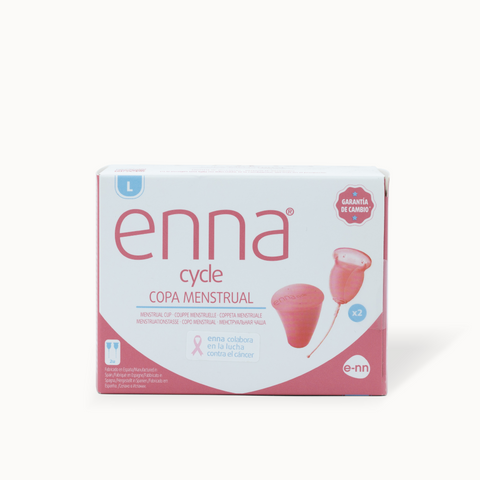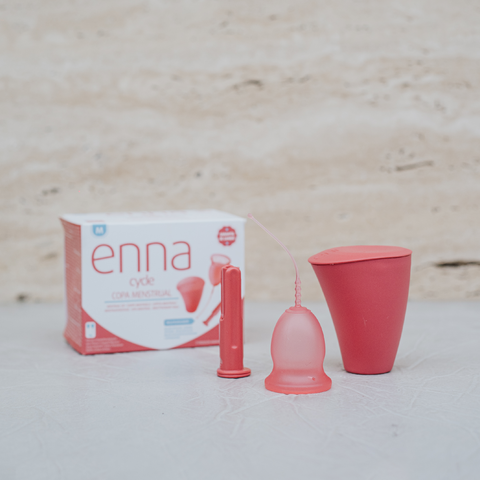In our culture, whenever we talk about menstruation, the tendency is to focus on all of its uncomfortable and uncomfortable aspects, downplaying what is really happening in our body – every month.
Some experts argue that, for most women, the emotions associated with premenstrual tension and the way they deal with this phase are a valuable tool for deciphering their general health. Every aspect of our menstrual cycle – duration, flow intensity and color, ovulation time, basal body temperature and pain – provides important information about our health and brings us closer to a valuable feedback mechanism to measure our progress towards achieving of greater well-being.
When the body has difficulty responding to certain hormonal changes, it creates physiological stress that can affect some of our systems. For example, nausea or intestinal changes before menstruation may be a sign that the digestive system is more fragile; On the other hand, breast tenderness, headaches or irritability may indicate that the body's detoxification system is not doing its best cleansing job.
If we support and strengthen each of our body's systems, some symptoms of Premenstrual Tension (PMS) can be eliminated. And for most women, giving a boost to these vital body processes doesn't require any kind of transcendent behavior or change, just greater attention to basic issues like sleep, nutrition, exercise and fitness. hydration.
Tune in to yourself. Each of us presents our own symptoms and some of them can give clues about what is happening to the body. Pay attention to what is normal and healthy for you to spot early signs of problems.
What can menstrual blood say about our health status?
A vibrant red shade of blood generally means you are early in your cycle. However, after menstruating for a few days, the blood may begin to change to a darker, browner shade. This is just the “older” blood in your uterus, which ended up oxidizing.
If you have an IUD, you may also notice a browner color to your blood, as you are shedding less of the uterus lining each month, which means the blood stays there for much longer.
Blood clots (thick drops of blood that can appear during the menstrual period), in turn, are also not usually a cause for concern – as long as they do not appear too frequently and do not assume large proportions.
If you feel that your cycle has clots very regularly, talk to your gynecologist so that a possible problem can be addressed.
Irregular cycles
As with most things related to menstruation, irregular periods can be completely normal. However, sometimes there are underlying causes for this irregularity that can – and should – try to understand. The main factor that can trigger this disorder is stress , which at high levels can block the signals that lead to the release of the egg that leads to your period.
Furthermore, when you have undergone some type of medical procedure in the uterine cavity (such as an abortion), menstruation may be more difficult.
Women who suffer from Polycystic Ovary Syndrome (PCOS) – a hormonal disorder where high levels of the male sex hormone androgen develop, causing increased hair growth and weight gain – may also not menstruate every month.
Professional athletes, on the other hand, may also have an extremely light or even absent period, as their body is not producing enough hormones.
Flow too intense/light
Menorrhagia (medical term for a prolonged or intense flow) can be more worrying when it exceeds the supposed time, and may be associated with thyroid problems. This dysfunction can also be caused or worsened by certain medications.
Age is also a factor to consider at this point, as when women between the ages of 30 and 40 reach perimenopause (the time before menopause) hormonal changes can cause their periods to become shorter. or longer.
Some hormonal changes can also cause your period to disappear temporarily. This is something that also happens when extreme weight loss occurs, as this causes a decrease in the production of body fat and estrogen, making menstruation lighter or even non-existent.
If your period appears less than 21 days apart or lasts more than seven days for more than three months, talk to your doctor to understand what is causing this. If, on the other hand, your period doesn't appear for three months (and you're not pregnant), follow the same tip and talk to a specialist.
Intense menstrual pain
Menstrual pain, as long as it is not too intense, is something that affects more than half of women. However, if you suddenly start to feel very severe back or pelvic pain during your menstrual period, there may be another reason behind this situation, such as endometriosis (a condition in which uterine tissue enters the pelvic cavity, affecting nearby organs, such as the ovaries).
If you find yourself dealing with intense menstrual cramps that take you away from your usual routine and that do not improve after taking specific pain-relieving medications, the best thing to do is consult your doctor. He may prescribe birth control pills or other medications specifically designed to alleviate these pains.





















